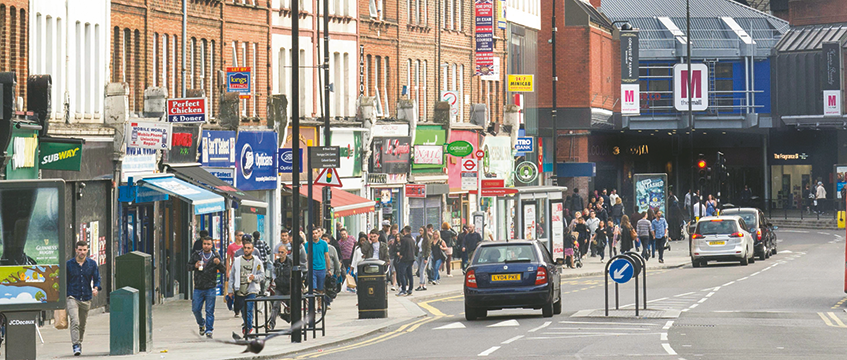COMMENT: With Valentine’s Day just gone, awash with declarations of love, isn’t it about time our government demonstrated a real commitment to our precious town centres through genuine action?
Town centres remain fundamental to society, and there is simply not enough being done to help protect them and attract the critical investment needed to keep town centres relevant and thriving for years to come.
Earlier this year, NewRiver submitted a proposed action plan to the Housing, Communities & Local Government Committee’s high streets and town centres in 2030 inquiry.
This is a matter that we feel very strongly about. As long-term investors in communities up and down the UK, our highly diverse UK retail and leisure portfolio sees us working with more than 60 different local authorities, so we feel well positioned to comment on this important subject.
Back to basics
To begin, it is important to understand the context behind why town centres are struggling and what is happening in the wider retail sector.
Recent MSCI data shows that, in real terms, there has been no rental growth within the retail sector since the early 2000s, and for the first time since records began, industrial yields are now lower than retail yields.
Last year, capital values for shopping centres fell by 8.7%, driven not only by yield expansion but also by a fall in rental values. It is very likely that values will continue to fall in 2019, and rents will fall too.
A major contributor to the problem is the oversupply of space. This issue emerged following the 1980s consumer boom, when the real estate industry and major food retailers began to increase retail floorspace exponentially. But that consumer boom crashed out in the early 1990s, exactly as all the shiny new retail space arrived on the market.
It took years for that excess space to be absorbed. And Groundhog Day is upon us again following an increase in retail space of 10% between 2001 and 2016, notwithstanding the fact that internet sales rose from zero to around 16%.
For any market to function effectively, supply and demand needs to be balanced, and so today’s excess retail space needs to be repurposed as occupational demand will never absorb the current excess space.
So what can be done?
A sector that is under such pressure relies on intervention and investment, but retail real estate will struggle to attract equity and credit under the current parameters, thus limiting future investment and growth.
Radical action needs to be taken in order to remove the barriers inhibiting investment in town centres. In our proposed 16-point action plan, we set out examples for how this could be tackled.
Let me outline seven of the critical actions that will help to reverse the decline of the town centre:
- Award town centres the status of “asset of community value”.
- Ensure there is a proper presumption against any retail development that increases net floorspace in a catchment area.
- Section 106 or community infrastructure levy payments should not apply to developments that reduce existing retail floor space.
- Stamp duty for town centre retail capital transactions and retail lease transactions should be reduced to 1%.
- Where a planning application proposes to reduce the existing retail floor space, in order to facilitate residential development outside London and major cities, the affordable housing requirement should be removed.
- Planning policy should include a stand-alone social impact assessment that is inclusive of all demographics.
- Greater private and public partnership – for if left to the private sector, change will take too long. Instead, councils must be more interventionist, through the acquisition of strategic retail assets, and work to repurpose the excess space. But retail needs specialist expertise. NewRiver is a well-positioned partner to co-invest with in this regard, and we commend the councils with whom we are already engaged, which have taken or are exploring this interventionist approach.
Through direct intervention and a greater focus on repurposing the excess supply of retail premises, supply and demand will be rebalanced and town centres will be more viable and healthy in the future.
Allan Lockhart is the chief executive of NewRiver REIT











